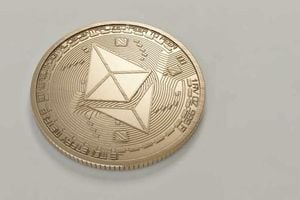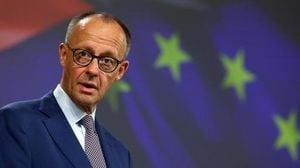On May 8, 2025, a controversial statement made by Alain Jakubowicz, the honorary president of the Ligue internationale contre le racisme et l’antisémitisme (LICRA), during a live broadcast on BFMTV, has sparked outrage within the political landscape of France. During the show "De 9 à 10" hosted by Apolline de Malherbe, Jakubowicz compared Jean-Luc Mélenchon, the leader of the left-wing political movement La France insoumise (LFI), to Joseph Goebbels, the Nazi propaganda minister. This incendiary remark came on the day commemorating the 80th anniversary of the victory over Nazism, a timing that many found particularly offensive.
Jakubowicz characterized La France insoumise as a "mouvement fasciste" (fascist movement) while discussing the book "La Meute," which critiques the internal workings of Mélenchon’s party. "It tells the story of a fascist movement," he asserted, further stating, "Honestly, all proportions guarded, I see a parallel - I know I'm going to get slammed but it doesn't matter - between Mélenchon and Goebbels. The minister of education of the people and propaganda, the all-powerful man that the people must follow. It's fascinating and at the same time it's chilling," he added.
The lack of immediate response from the host, Apolline de Malherbe, and other panelists during the broadcast was met with criticism. Many viewers and political figures expressed their dismay over the silence following such a severe accusation. Manuel Bompard, a deputy from Marseille and member of LFI, condemned the comparison, saying, "On BFMTV, Jean-Luc Mélenchon and Goebbels are now being compared without any contradiction from the media pack. How far will they go in ignominy? We await unanimous apologies and condemnations in the face of these infamous outrages."
Other LFI members also voiced their outrage. Sarah Legrain, a deputy representing Paris, labeled the comparison as "infamous" and pointed out that it was made on the anniversary of the victory over Nazism, suggesting it was an attempt to divert attention from more pressing issues, including the humanitarian crisis in Gaza. Mathilde Hignet, another LFI deputy, called the comparison a disgrace, emphasizing the absence of outrage from those present on the set.
In the aftermath of the broadcast, Apolline de Malherbe took to social media to clarify her position. She stated, "I am very attached to freedom of expression and the independence of my guests. But neither BFMTV nor myself can be associated with comparisons like the one expressed this morning at the very end of the show, and which only commits its author." However, many felt her response was insufficient, and Mélenchon himself reacted sharply, questioning her silence during the broadcast and demanding accountability for the remarks made.
Jean-Luc Mélenchon announced that he would file a complaint for "public insult" against Jakubowicz. In a statement, he said, "He identified me with Joseph Goebbels, the anti-Semitic criminal. He also insulted our political movement, its members, and its voters by treating the rebellious as Nazis. All this on the anniversary of the defeat of Hitler's Germany. Given his associative responsibilities and the day, Mr. Alain Jakubowicz cannot ignore the scope and the very seriously offensive meaning of his words on such a subject."
BFMTV's management later issued a statement condemning Jakubowicz's comments, stating that "freedom of expression does not justify excess and defamation." The Société des Journalistes de BFMTV also condemned Jakubowicz's remarks, asserting that "nothing justifies such a comparison with a figure of Nazism."
The incident has ignited a broader discussion about the treatment of political figures in the media, particularly those on the left, and the responsibilities of broadcasters in moderating extreme statements made by guests. Critics argue that allowing such comments to go unchallenged contributes to a toxic political environment.
As the political climate continues to evolve in France, the implications of this incident may resonate beyond the immediate fallout, raising questions about media ethics, the boundaries of political discourse, and the protection of public figures from defamatory remarks.
With the ongoing tensions surrounding La France insoumise and its leadership, this episode highlights the challenges faced by leftist movements in France, particularly in navigating a media landscape that often appears hostile to their narratives. As the situation develops, it will be crucial to observe how both the public and political figures respond to the call for accountability and the protection of political discourse.






